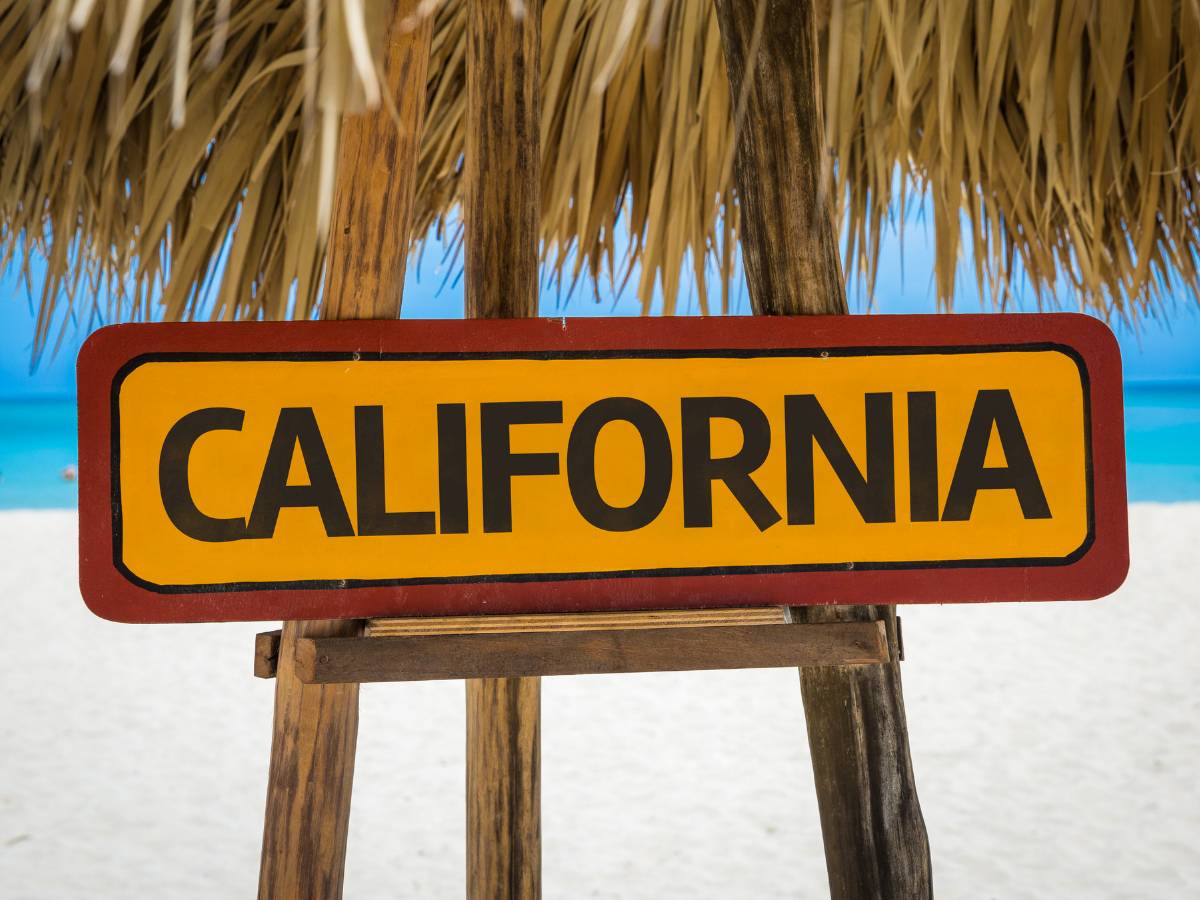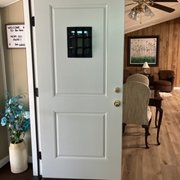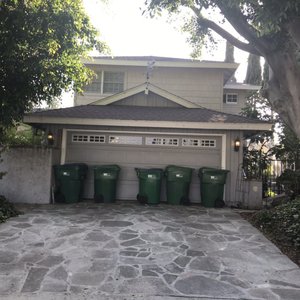Windows are essential for any home, providing natural light, proper ventilation, and insulation. However, choosing the right windows for extreme climates can be challenging. Homeowners must consider energy efficiency, weather resistance, durability, and low maintenance. In particular, California weather demands durable and efficient windows due to its varied climate zones.
What are Vinyl Windows?
Vinyl windows are created from polyvinyl chloride (PVC) material with a hollow core that provides insulation and resists moisture. These windows are popular among homeowners because of their energy-efficiency properties compared to other materials like wood or aluminum. Vinyl windows have become more prevalent in extreme climates since they offer many advantages, such as durability against fluctuating temperatures and high winds.
Importance of Choosing the Right Windows for Extreme Weather
Choosing the right window type is crucial in maintaining comfortable temperatures within the home while reducing energy costs from heating or cooling appliances. This is especially important when living in regions with weather like California, where temperature fluctuations can be significant between seasons and throughout the day. While all window types may look identical at first glance, each has specific features that suit different climate zones.
Overview of California’s Climate
California’s weather varies greatly depending on location due to its large size and diverse topography. The state has five distinct climate zones: Coastal Climate Zone, Desert Climate Zone, Mountain Climate Zone, Southern Inland Climate Zone & Northern Inland Climate Zone.
The Coastal zone has mild winters with cool summers influenced by ocean currents. The Desert zone has hot summers with little rainfall and cold winters. The Mountain zone is characterized by warm summers and cold winters, with snowfall in higher elevations. The Southern Inland zone has hot summers and mild winters, while the Northern Inland zone has moderate summers and cold winters with high precipitation levels.
Choosing the right windows for a home requires understanding how they can affect indoor temperatures, energy usage, noise pollution levels, and other factors that may vary depending on location and climate zones.
Performance of Vinyl Windows in Extreme Climates
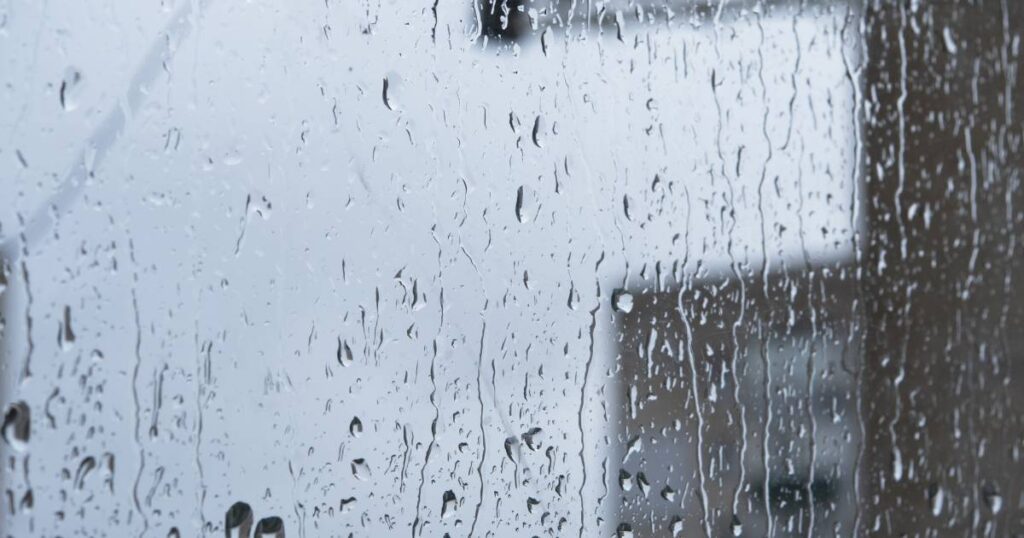
The Benefits of Vinyl Windows in Extreme Climates
Vinyl windows are the best choice for homes situated in extreme climates. They provide a range of benefits that make them superior to other window materials, such as wood or aluminum. One such benefit is their energy efficiency.
Vinyl windows are highly efficient at retaining heat during winter and blocking the sun’s heat during summer, helping homeowners save on energy bills. Another advantage of vinyl windows is their weather resistance.
They can withstand extreme California weather conditions, including strong winds and heavy rain, without becoming damaged or warped. Additionally, vinyl windows have low maintenance requirements compared to other materials like wood, which may require regular painting or staining.
Comparison with Other Window Materials
There are several differences when comparing vinyl windows to other materials used in extreme climates, like wood and aluminum. Wood windows are known for their looks but require regular maintenance to prevent rotting, warping, and insect damage associated with moisture absorption.
Aluminum windows have high durability but poor insulation, which makes them unsuitable for extreme climates- they efficiently conduct heat leading to increased energy costs for homeowners depending on air conditioning units. In comparison, Vinyl window frames made up of PVC (Polyvinyl Chloride) material provide better insulation than aluminum, reducing airflow between indoor and outdoor environments, thus proving effective for year-round use.
Energy Efficiency
Vinyl windows’ insulating properties provide excellent thermal performance that meets California’s Energy Code Requirements, unlike wooden frames needing foam filling, even without additional insulating material installation. In contrast, aluminum frames would need double glazing added onto the frame to enhance its thermal performance. Without proper insulation, heating and cooling systems work harder against loss of indoor air which leads to increases in monthly utility bills.
However, Vinyl’s Low U-Factor (the rate at which a window conducts non-solar heat flow) makes it the optimal choice for energy-efficient households. Vinyl windows offer homeowners several benefits, making them the best choice for extreme climates.
They provide excellent energy efficiency and California weather resistance and are low maintenance. In addition, they have superior insulation properties compared to aluminum and wood windows while maintaining an aesthetic appeal fitting the house design. They are a cost-effective alternative to other materials like wood or aluminum, saving homeowners money on power bills and additional maintenance fees.
The Durability of Vinyl Windows in California
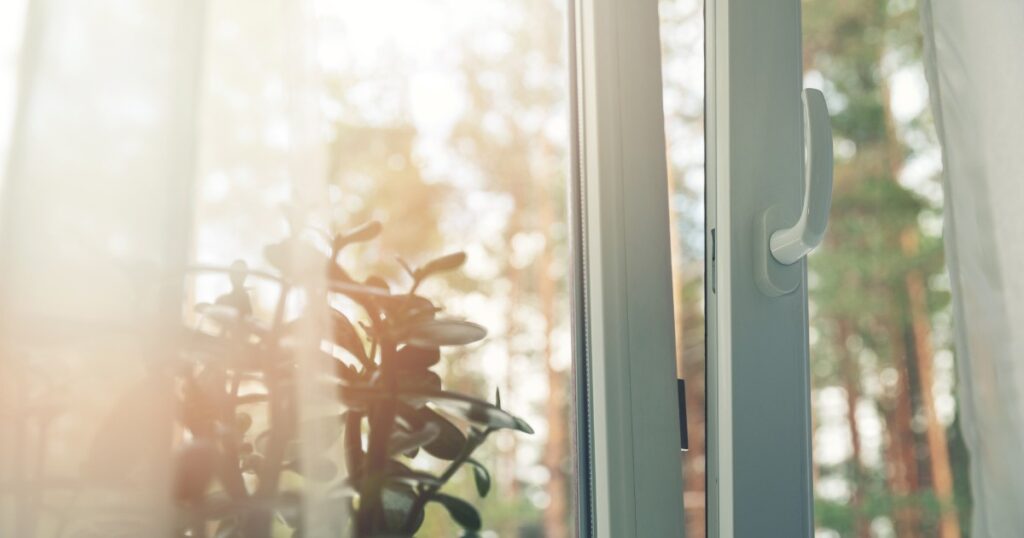
Vinyl windows are popular due to their durability and low maintenance. In California, vinyl windows are exposed to various environmental factors that can impact their lifespan.
These factors include UV exposure, temperature changes, and moisture levels. Understanding how these factors affect the durability of vinyl windows is essential when choosing the right windows for your home.
UV Exposure
One of the significant factors affecting the durability of vinyl windows in California is UV exposure. The intense sunlight in many parts of the state can cause vinyl to fade and become brittle over time.
It leads to cracking or warping of the window frames, compromising their performance. To combat this issue, manufacturers have developed technologies that help mitigate UV damage.
For example, some vinyl window frames are coated with ultraviolet inhibitors that protect against fading and other effects of sun damage. Additionally, darker-colored structures absorb more heat and light than lighter colors or white frames, making them susceptible to more significant UV damage.
Temperature Changes
Temperature changes throughout the year characterize California weather. During warmer months, temperatures can reach well above 100°F in some parts of the state, while winter often brings freezing temperatures in mountainous areas like Lake Tahoe. These extreme temperature fluctuations can affect all window materials, including vinyl.
However, vinyl windows have an advantage over other materials like wood or aluminum regarding temperature changes because they do not expand or contract as much as they do when exposed to heat or cold. This means they maintain their shape better over time and are less likely to develop warping or cracking than other materials.
Moisture and Humidity Levels
Moisture is another important factor affecting the durability of any material used on homes in California weather. Excess moisture can lead to mold growth, rot, and other problems that can significantly shorten the lifespan of a window. Coastal regions where high humidity and salty air can cause corrosion. Vinyl windows are inherently resistant to moisture, making them an excellent option for homes in these areas.
Some manufacturers have developed vinyl windows with additional weatherproofing features like gaskets or weather stripping that help keep out moisture and prevent air leaks. These features are needed to ensure the windows’ performance and longevity in California’s varied climate conditions.
Performance and Durability of Vinyl Windows in California’s Climate Zones
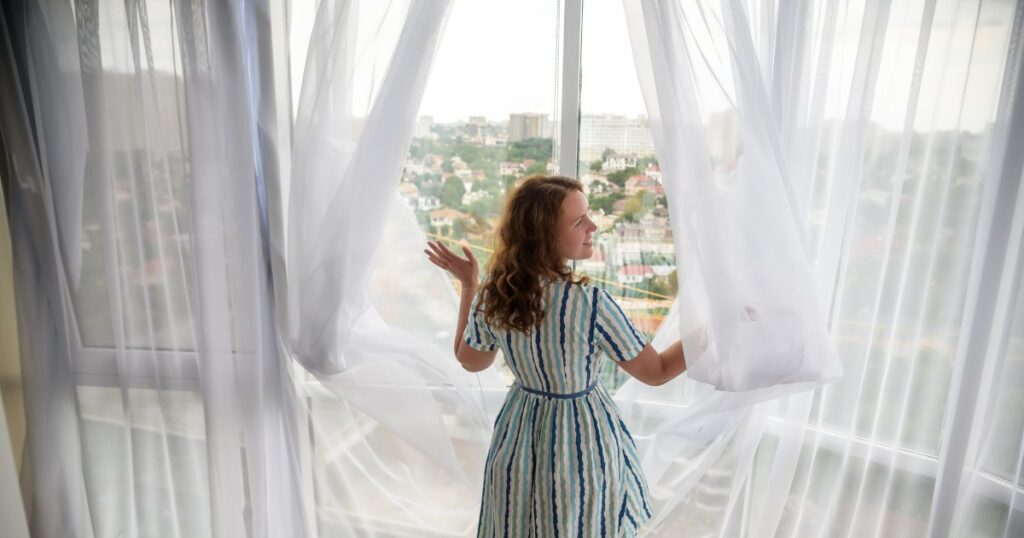
Coastal Climate Zone: Resisting Salt Corrosion, Moisture, and Wind Damage
Vinyl windows are a popular choice for coastal homes in California because they provide excellent resistance to salt corrosion, moisture, and wind damage. Since the vinyl material is not affected by humidity or saltwater, it won’t rust or corrode like metal windows. The frames are also designed to withstand strong winds that can cause damage to other window materials.
In the coastal climate zone of California, where high humidity is common, salt spray can cause severe corrosion to other materials. It provides an excellent option for homeowners seeking durable and low-maintenance window solutions. However, despite their durability under these extreme weather conditions, there are potential issues that homeowners need to consider.
Prolonged exposure or neglectful maintenance could provide a breeding ground inside the frame cavities. Fortunately, careful cleaning with common household cleaners such as vinegar solution or mild soap will prevent any buildup from happening.
Mountain Climate Zone: Keeping Homes Warm During Cold Winters and Cool During Hot Summers
The mountain climate zone in California has cold winters and hot summers with large temperature fluctuations throughout each day. Vinyl windows are designed with a multi-chambered frame that helps insulate against heat loss and provides insulation against heat gain. This feature makes them perfect for mountain homes where energy efficiency remains a priority.
Additionally, vinyl windows have excellent resistance against snow loads, making them perfect for use where the climate experiences heavy snowfalls. The material’s durability, resistance to temperature fluctuations, and insulation properties help homeowners save significantly on heating and cooling costs.
Desert Climate Zone: Blocking Out Heat from the Sun
In California’s desert climate zone, temperatures can be scorching during the day. It makes it essential for homes to have windows that block out the heat from the sun. Vinyl windows are designed with Low-E glass. It prevents harmful UV rays from penetrating homes. This glass helps filter out the intense heat of direct sunlight and keeps indoor spaces comfortable irrespective of outside temperatures.
Vinyl window frames also benefit in this climate zone as they do not conduct heat or cold. This feature prevents heat gain inside homes and ensures homeowners enjoy a comfortable indoor environment. There is no need to worry about high energy costs.
Final Thoughts on Vinyl Windows
Vinyl windows provide an excellent solution for homeowners in extreme climates, such as California’s different zones. Their superior durability factors, such as resistance to harsh weather elements, make vinyl windows a long-lasting investment. Additionally, their energy efficiency features offer year-round benefits. It reduces heating and cooling bills while improving overall home comfort levels.

